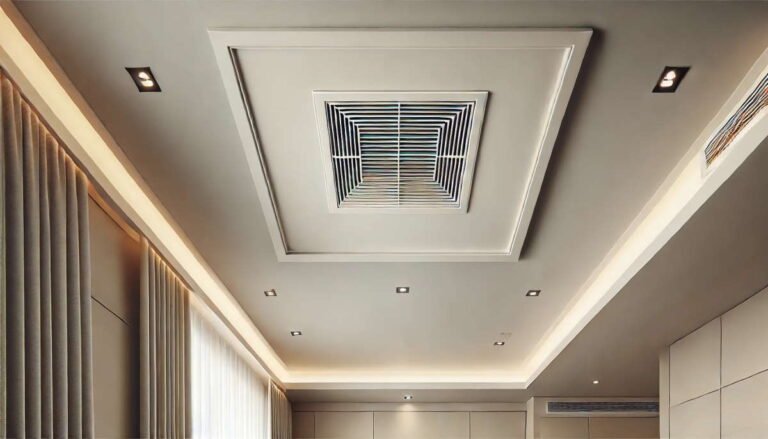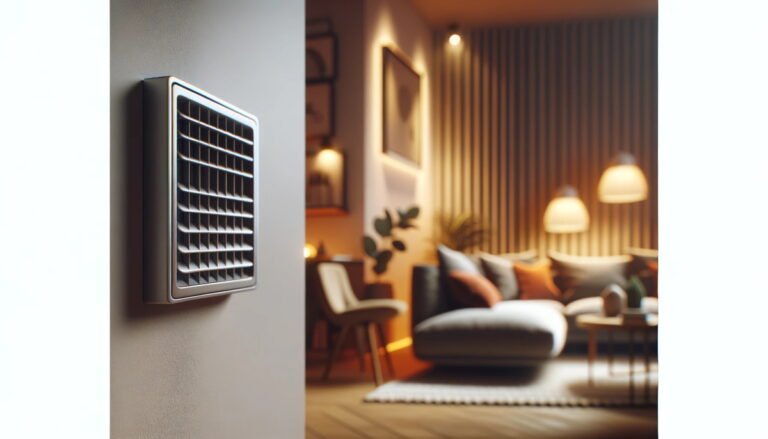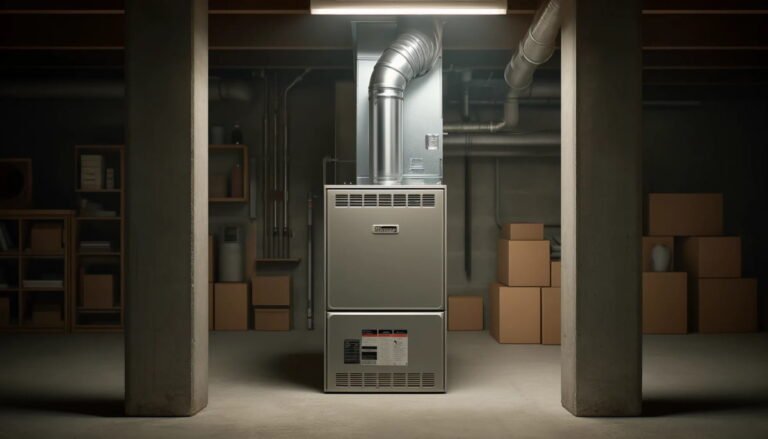Heat Pump Efficiency Explained To Select the Best Model
Heat pump efficiency is a critical factor to consider when choosing the best heating and cooling system for your home. It determines how effectively the system converts energy into heating or cooling, directly impacting your energy bills and environmental footprint.
Understanding the efficiency of heat pumps can help you make an informed decision, ensuring you select a model that provides optimal performance while saving you money and reducing your carbon footprint.
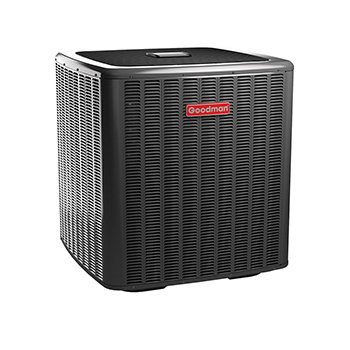
In this guide, we will explore the meaning of heat pump efficiency, the key metrics to look for, and how to choose the best model for your needs.
Investing in such heat pumps is a wise decision. It delivers hot water at an accurate temperature, enhances comfort, and provides significant savings on your energy bills while reducing greenhouse gas emissions.
The Reason Why The Heat Pump Efficiency is High
One of the main reasons why heat pump efficiency is so high compared to other systems is because this electric device doesn’t generate heat but moves it from one place to another. It either increases the temperature by adding heat or decreases it by removing heat from the room.
Another benefit of these devices is the ability to dehumidify the air so less energy is used (less load) while the performance and comfort are increased.
Measuring Heat Pump Efficiency
When it comes to understanding how well a heat pump performs, you’ll want to get familiar with a few key efficiency metrics: COP, HSPF, and SEER. These metrics give you a clear picture of how effectively a heat pump can heat or cool your home.
COP (Coefficient of Performance)
COP (Coefficient of Performance) is one of the primary indicators of a heat pump’s efficiency. It’s a straightforward ratio: the amount of heat energy produced compared to the amount of electrical energy consumed.
For instance, if a heat pump has a COP of 4, it means that for every unit of electricity it uses, it produces four units of heat. The higher the COP, the more efficient the heat pump is, which translates to lower energy costs and a smaller carbon footprint. COP is most commonly used for assessing performance during the heating season.
HSPF (Heating Seasonal Performance Factor)
HSPF (Heating Seasonal Performance Factor) is another crucial metric, particularly for those interested in how a heat pump performs over an entire heating season. Unlike COP, which looks at performance at a single point in time, HSPF takes a broader view, considering the total heating output over the heating season relative to the total electricity consumed.
An HSPF rating is often seen on air-source heat pumps, with higher numbers indicating better efficiency. If you’re looking at a heat pump with an HSPF of 10, that’s generally considered quite efficient and can lead to significant savings on your heating bills.
SEER (Seasonal Energy Efficiency Ratio)
SEER (Seasonal Energy Efficiency Ratio), on the other hand, focuses on cooling performance. It measures the cooling output during a typical cooling season divided by the total electric energy input during the same period.
A higher SEER rating means a more efficient cooling system.
For example, a heat pump with a SEER rating of 20 is much more efficient than one with a rating of 14. In regions with hot summers, a high SEER rating can make a noticeable difference in your electricity bills and overall comfort.
Energy Efficiency Explained
When choosing the best heat pump model, efficiency is a crucial factor to consider. Simply put, efficiency measures how much energy you get from the device compared to how much energy it uses.
For example, if a gas furnace is 96% efficient, it means that 96% of the energy is used for heating, while 4% is wasted.
On the other hand, an electric heat pump with an efficiency of 3.5 uses 2,500 watts to run and produces 8,750 Btu/hr (3.5 * 2,500). This means the heat pump is 350% efficient because it extracts additional energy from the warm air.
In terms of standards, the minimum SEER (Seasonal Energy Efficiency Ratio) is 13 in Canada and 14 in the US, while the minimum HSPF (Heating Seasonal Performance Factor) is 6.7 in Canada (since 2006) and 8.2 in the US (since 2015).
If all these numbers seem confusing, look for the blue Energy Star logo on the device. An Energy Star certification means the product meets strict energy efficiency guidelines, making it easier to choose a product that increases your home’s comfort while saving energy and money.
ENERGY STAR is a voluntary program run by the U.S. Environmental Protection Agency, helping consumers select high-efficiency products to save money and protect the climate.
Remember, heat pump efficiency can decrease as outside temperatures drop, requiring supplemental heating in colder regions. Fortunately, this applies mainly to older heat pumps, while newer models can supply up to 100% of heating needs even in cold weather.
It’s also important to note that efficiency isn’t the only factor when selecting a heat pump. Consider your home’s location and climate, the type of unit, its size, and the cost of fuel. These factors all play a role in finding the most suitable and cost-effective heating solution for your needs.
Factors Affecting Heat Pump Efficiency
Several factors can influence how efficiently a heat pump operates, and understanding these can help you maximize your system’s performance and longevity.
Temperature Differences
The difference in temperatures play a significant role in heat pump efficiency. Heat pumps work by transferring heat from one place to another, and they perform best when the temperature difference between the source (outside air, ground, or water) and the target (inside your home) is small.
In extreme cold or hot conditions, the heat pump has to work harder to move heat, which can reduce its efficiency. For instance, an air-source heat pump may struggle more in freezing temperatures compared to milder climates.
Quality of Installation
Quality of installation is another critical factor. Even the most advanced and efficient heat pump will underperform if it isn’t installed correctly. Proper installation includes ensuring the system is appropriately sized for your home, the ductwork is correctly sealed and insulated, and the unit is placed in an optimal location.
Maintenance and Upkeep
Regular maintenance tasks, such as cleaning or replacing filters, checking refrigerant levels, and inspecting the system for wear and tear, can prevent small issues from becoming major problems. A well-maintained heat pump not only operates more efficiently but also lasts longer. Neglecting maintenance can lead to decreased performance, higher energy bills, and costly repairs.
Building Insulation and Sealing
These are also important for the overall efficiency of your HVAC system. A well-insulated and tightly sealed home helps maintain a stable indoor temperature, reducing the workload on your heat pump.
Proper insulation in the walls, attic, and floors, as well as sealing gaps around windows and doors, can significantly improve energy efficiency. Without good insulation and sealing, the heat pump has to work harder to maintain the desired temperature, leading to higher energy consumption and wear on the system.
Advantages of Efficient Heat Pumps
Efficient heat pumps offer numerous benefits that make them an attractive choice for both heating and cooling your home.
Energy Savings
Energy savings are one of the most compelling advantages of using a quality heat pump.
For example, an efficient heat pump can deliver up to three times more heat energy than the electrical energy it consumes. This means you can significantly reduce your energy consumption, which is especially beneficial if you’re looking to lower your utility bills and reduce your reliance on non-renewable energy sources.
Environmental Benefits
Environmental benefits are another major advantage. Because heat pumps use less energy, they produce fewer greenhouse gas emissions compared to conventional heating and cooling systems. This makes them a more environmentally friendly option, particularly if your electricity comes from renewable sources.
Many modern heat pumps use environmentally friendly refrigerants that have a lower global warming potential than older systems, further enhancing their eco-friendliness.
Cost Savings Over Time
While the initial installation cost of a heat pump can be higher than that of traditional systems, the energy savings you achieve over time can offset this initial expense. Efficient heat pumps lower your monthly utility bills and, over the years, these savings can add up substantially.
Additionally, many regions offer incentives and rebates for installing such heat pumps, which can further reduce your upfront costs. The durability and long lifespan of heat pumps mean that you will also save money on replacements and repairs in the long run.
Tips for Maximizing Heat Pump Efficiency
To get the most out of your heat pump, it’s essential to focus on a few key practices that can enhance its efficiency and longevity.
Regular Maintenance
Regular maintenance is crucial for keeping your heat pump operating at peak efficiency. This includes tasks like cleaning or replacing air filters every one to three months, checking and cleaning the coils, and ensuring the outdoor unit is free from debris such as leaves, dirt, and snow.
It’s also a good idea to schedule professional maintenance at least once a year.
Proper Thermostat Settings
Proper thermostat settings can make a significant difference in your heat pump’s performance. Setting your thermostat to a comfortable yet energy-efficient temperature can reduce the workload on your heat pump.
During the winter, try to keep your thermostat around 68°F when you’re at home and lower it when you’re away or sleeping. In the summer, set it to around 78°F when you’re home and increase it when you’re away.
Consider using a programmable or smart thermostat to automatically adjust the temperature according to your schedule. Avoid drastic temperature changes, as these can force your heat pump to work harder, reducing its efficiency and increasing wear and tear.
Enhancing Home Insulation
Enhancing home insulation is another effective way to maximize your heat pump’s efficiency. Good insulation helps maintain a consistent indoor temperature, reducing the amount of work your heat pump has to do. Start by ensuring that your home is well-insulated, particularly in the attic, walls, and floors.
Check for and seal any leaks around doors, windows, and other openings where air might escape. Adding weatherstripping or caulking can make a big difference.
Additionally, insulating your ductwork can prevent heat loss as air travels through your home, ensuring that your heat pump operates as efficiently as possible.
Comparing Heat Pump Efficiency to Other Systems
When evaluating heating and cooling options for your home, it’s essential to compare the efficiency of heat pumps to other systems like traditional furnaces, air conditioners, and hybrid systems. Each has its advantages, but heat pumps often stand out for their reliable work and cost-effectiveness.
Heat Pumps vs. Traditional Furnaces
Heat pumps are generally more efficient than traditional furnaces. A typical furnace, whether it’s powered by natural gas, oil, or electricity, converts its fuel into heat at an efficiency rate that usually ranges between 80% and 98%. This means that for every unit of energy consumed, up to 98% is converted into heat, with the remaining percentage lost as waste.
In contrast, heat pumps can achieve efficiencies of 300% to 400% because they transfer heat rather than generate it. For example, a heat pump with a COP of 3 can produce three units of heat for every unit of electricity it consumes. This translates to significant energy savings, especially in milder climates where heat pumps can operate more efficiently throughout the year.
Heat Pumps vs. Air Conditioners
When it comes to cooling, heat pumps are comparable to air conditioners in terms of efficiency. Both systems use similar technology to remove heat from your home.
However, a key advantage of heat pumps is their dual functionality—they can provide both heating and cooling. Air conditioners are rated using the SEER metric, and modern units typically range from 13 to 21 SEER.
Heat pumps also use SEER for their cooling efficiency, and the top models can achieve SEER ratings comparable to the best air conditioners, often between 14 and 20. Therefore, in cooling mode, a heat pump performs just as efficiently as an air conditioner while also offering the added benefit of heating during the colder months.
Hybrid Systems
Hybrid systems, also known as dual-fuel systems, combine a heat pump with a traditional furnace. This setup takes advantage of the heat pump’s high efficiency in moderate temperatures and switches to the furnace during extreme cold.
For instance, a heat pump might be used when the outside temperature is above 35°F, providing efficient heating. When the temperature drops below this threshold, the system switches to the furnace, ensuring that your home stays warm without overworking the heat pump.
This combination can optimize energy use and reduce heating costs. Hybrid systems offer a versatile and efficient solution, providing the best of both worlds—maximizing the heat pump’s efficiency while ensuring reliable heating in all weather conditions.
Things to Consider When Choosing the Most Efficient Heat Pump
It can be challenging to determine what’s inside a heat pump just based on the provided specifications. The best approach is to check online reviews or consult the manual to see what a particular model includes, then compare this data.
To select and buy the most efficient heat pump, look for models that offer these key components:
A two-speed compressor or a variable capacity compressor with inverter technology. This type of compressor provides the right capacity at any moment, reducing stress on the elements and minimizing wear and tear.
A scroll compressor, which is not only more efficient but also operates at a lower noise level and is more durable than the widely used reciprocating type. The noise level on the best models can go down to 58 dBA.
A zone control system allows for independent temperature control in each room, enhancing comfort and efficiency.
Variable speed motors (even dual-speed) installed on indoor and outdoor fans ensure better air distribution with greater effect.
Additionally, look for heat pumps with larger coil surface areas, time delays on controls, and expansion valves.
Some heat pumps are equipped with a desuperheater, which uses wasted heat from the cooling mode to heat water, further improving efficiency.
How Efficient Are Heat Pumps?
Here are five popular models of heat pumps known for their high efficiency:
- Daikin DZ20VC: The Daikin DZ20VC is a top-of-the-line variable-speed heat pump with a SEER rating of up to 21 and an HSPF of up to 10. It features advanced inverter technology, which allows it to adjust its speed based on the heating and cooling demands, ensuring maximum comfort.
- Lennox XP25: The Lennox XP25 is another great model, boasting a SEER rating of up to 23.5 and an HSPF of up to 10.2. It uses Precise Comfort® technology, which adjusts the output to maintain the desired temperature precisely, reducing energy consumption and enhancing comfort.
- Carrier Infinity 20 (25VNA0): The Carrier Infinity 20 with Greenspeed® Intelligence offers a SEER rating of up to 20.5 and an HSPF of up to 13. It features variable-speed technology and smart controls, providing superior operation and precise temperature control.
- Trane XV20i: The Trane XV20i heat pump is known for its high efficiency, with a SEER rating of up to 20 and an HSPF of up to 10. It uses TruComfort™ variable-speed system to maintain consistent and reliable heating and cooling, adapting to changes in temperature with precision.
- Mitsubishi Electric MSZ-FH: The Mitsubishi Electric MSZ-FH series is a ductless mini-split heat pump, offering a SEER rating of up to 30.5 and an HSPF of up to 13.5. It uses advanced technology, including the Hyper-Heating INVERTER® (H2i®), to provide efficient heating even in extremely cold climates.
Conclusion
Heat pumps offer a highly efficient solution for heating and cooling your home, providing significant energy savings, reduced environmental impact, and long-term cost benefits. By transferring heat rather than generating it, heat pumps achieve efficiency levels that far surpass traditional furnaces and offer comparable cooling performance to air conditioners. Key metrics like COP, HSPF, and SEER help gauge their performance, and factors such as proper installation, regular maintenance, and adequate home insulation are crucial for maximizing heat pump operation.
Considering a heat pump is a smart investment for homeowners seeking to enhance energy efficiency and reduce utility costs. Their ability to provide both heating and cooling, coupled with the potential for integration into hybrid systems, makes them versatile and reliable in various climates.
With benefits such as lower energy consumption, fewer greenhouse gas emissions, and significant cost savings over time, heat pumps stand out as an excellent choice for maintaining a comfortable and sustainable home year-round.
More About Heat Pumps
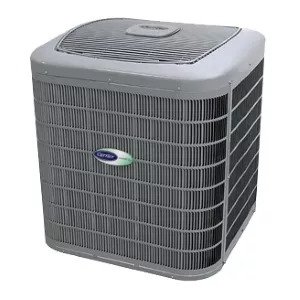
Heat Pump Not Cooling? Here’s What You Need to Know
Heat pumps are essential not only in the winter for heating our homes but also in the summer to cool…
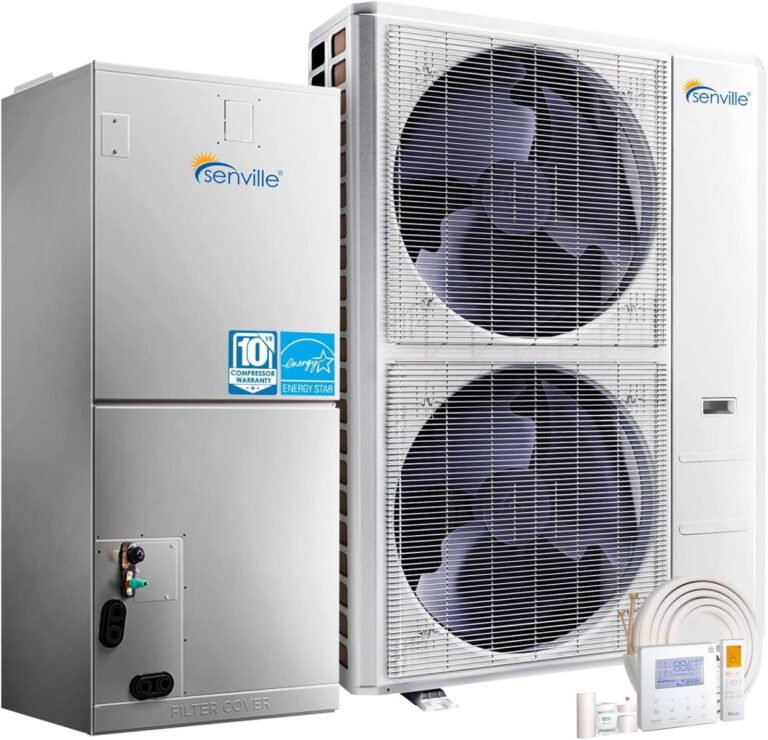
Compare Ductless Mini-Split Heat Pumps vs. Window Heat Pumps: Which Is Right for You?
In this article, we are going to look at ductless mini-split heat pumps vs. window heat pumps, examine how each…
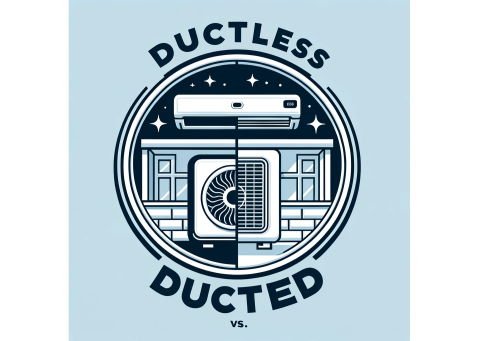
Explore the Differences: How Ductless vs. Ducted Heat Pumps Compare
Deciding between ductless vs. ducted heat pumps is as easy as planning a holiday. You know it’s going to cost…

